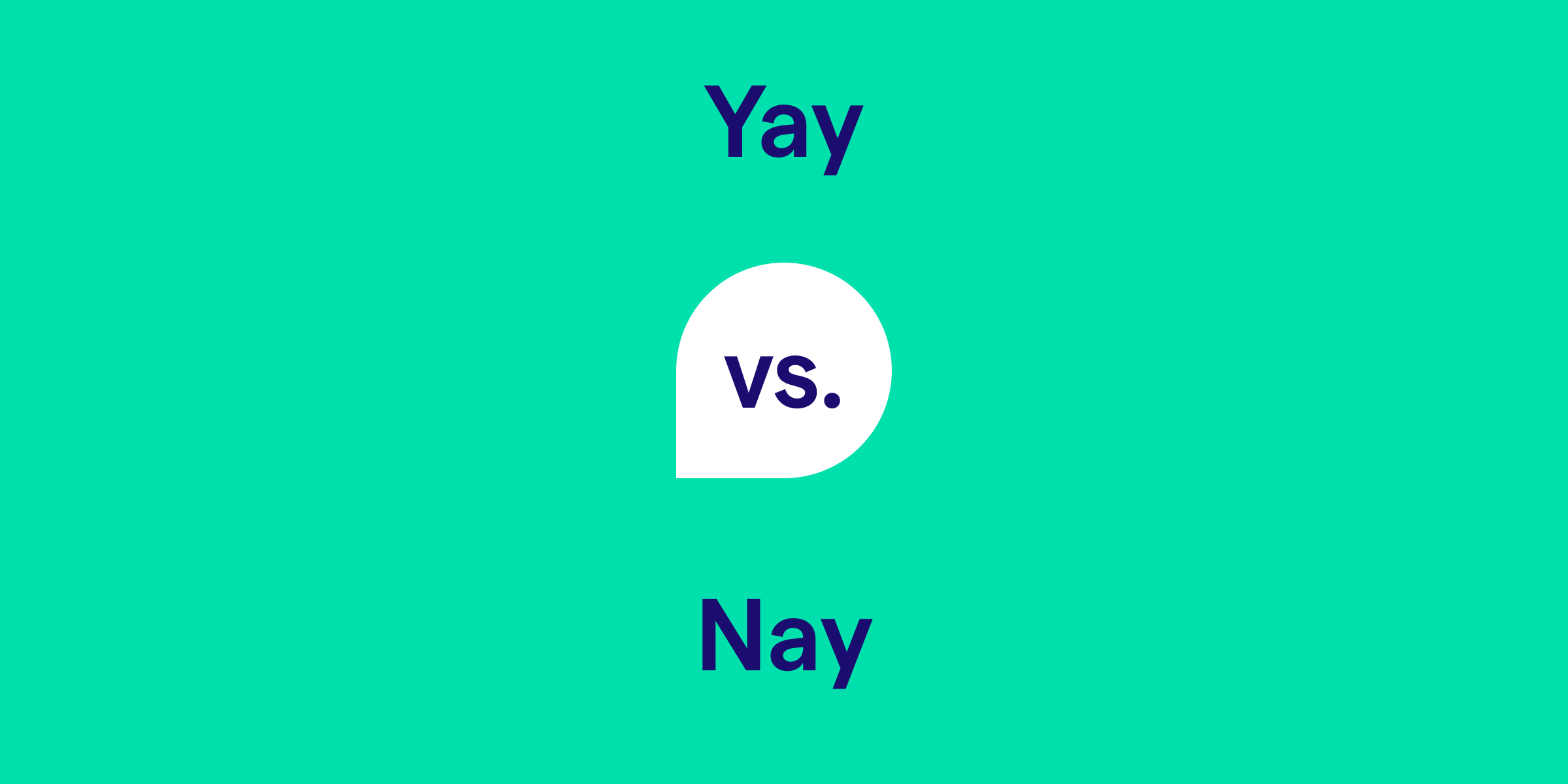Yay vs. Nay: What's the Difference?
The words yay and nay are often used to express approval or disapproval, respectively. Yay is typically used to indicate agreement, enthusiasm, or a positive response, similar to saying yes. On the other hand, nay is used to signify opposition, denial, or a negative response, akin to no. Both terms are commonly used in informal settings and during voting to represent affirmative or negative votes.

How do you use the word yay in a sentence?
The word yay is used to express joy, support, or agreement. It's a casual term, often seen in spoken conversation or light-hearted written dialogues. One can use yay to enthusiastically agree with someone or to celebrate a happy occurrence.
Examples of yay in a sentence
- We finally finished the project, yay!
- Are you coming to the party? Yay or nay?
- I passed my driving test — yay for me!
How do you use the word nay in a sentence?
Nay is often used to express negation or dissent. It's more formal than a simple no and is traditionally used in legislative contexts, like parliamentary or council votes. However, it can also be used humorously or dramatically in everyday conversation to emphasize refusal or disagreement.
Examples of nay in a sentence
- The proposal was met with a resounding nay from the committee.
- I asked if he liked the movie, and he said nay.
- Nay, I believe we should take a different approach to this problem.
Yay and nay definitions, parts of speech, and pronunciation
Yay definition:
Yay is an interjection used to express joy, approval, or excitement. It is often used in response to good news or to agree enthusiastically with what someone has said.
Yay parts of speech:
Yay pronunciation:
Yay is pronounced as /yā/, rhyming with the word 'day'.
Nay definition:
Nay is a term used to express negation, dissent, or denial. It is often used in formal voting contexts or old-fashioned speech.
Nay parts of speech:
Nay pronunciation:
Nay is pronounced as /nā/, which also rhymes with the word 'day'.
Yay is an interjection used to express joy, approval, or excitement. It is often used in response to good news or to agree enthusiastically with what someone has said.
Yay parts of speech:
- Interjection: Yay! We're going on a vacation next week.
Yay pronunciation:
Yay is pronounced as /yā/, rhyming with the word 'day'.
Nay definition:
Nay is a term used to express negation, dissent, or denial. It is often used in formal voting contexts or old-fashioned speech.
Nay parts of speech:
- Adverb: He was expected to say yes, but he voted nay.
Nay pronunciation:
Nay is pronounced as /nā/, which also rhymes with the word 'day'.
Yay vs. nay in a nutshell
In summary, yay denotes enthusiasm, approval, or agreement, and is used in a lighter, more casual context. On the other hand, nay signifies opposition or disapproval and is common in more formal settings such as voting scenarios. Both words share a pronunciation pattern but serve different purposes in expression. Understanding the context and application of these terms can enhance communication efficiency and clarity.
Get AI Writing Assistance Wherever You Type
Make sure your vocabulary is on point and every punctuation mark is in the right place, no matter where you’re working. Grammarly works across more than 1 million websites and apps so you can improve your writing without copying, pasting, or breaking focus.

More Commonly Confused Words
Interest piqued? Pore (not pour) over other commonly confused words to help your writing reach peak (not peek) performance.